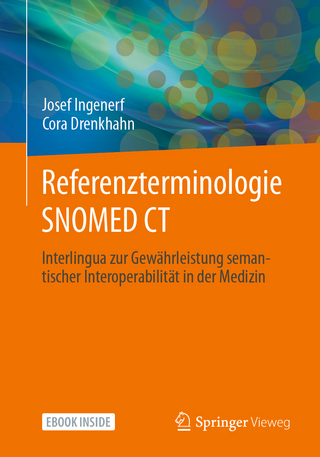Principles of Data Mining and Knowledge Discovery
Springer Berlin (Verlag)
978-3-540-65068-3 (ISBN)
The volume presents 26 revised papers corresponding to the oral presentations given at the conference; also included are refereed papers corresponding to the 30 poster presentations. These papers were selected from a total of 73 full draft submissions. The papers are organized in topical sections on rule evaluation, visualization, association rules and text mining, KDD process and software, tree construction, sequential and spatial data mining, and attribute selection.
On objective measures of rule surprisingness.- Discovery of surprising exception rules based on intensity of implication.- A metric for selection of the most promising rules.- For visualization-based analysis tools in knowledge discovery process: A multilayer perceptron versus principal components analysis: A comparative study.- Trend graphs: Visualizing the evolution of concept relationships in large document collections.- Ranked rules and data visualization.- TextVis: An integrated visual environment for text mining.- Text mining at the term level.- A new algorithm for faster mining of generalized association rules.- Knowledge discovery with clustering based on rules. Interpreting results.- Efficient construction of comprehensible hierarchical clusterings.- Cost sensitive discretization of numeric attributes.- Handling KDD process changes by incremental replanning.- Object mining: A practical application of data mining for the construction and maintenance of software components.- A relational data mining tool based on genetic programming.- Inducing cost-sensitive trees via instance weighting.- Model switching for bayesian classification trees with soft splits.- Interactive visualisation for predictive modelling with decision tree induction.- Discovery of diagnostic patterns from protein sequence databases.- The PSP approach for mining sequential patterns.- Knowledge discovery in spatial data by means of ILP.- Querying inductive databases: A case study on the MINE RULE operator.- Classes of four-fold table quantifiers.- Detection of interdependences in attribute selection.- Postponing the evaluation of attributes with a high number of boundary points.- A hybrid approach to feature selection.- Discretization and grouping: Preprocessing steps for data mining.- Fuzzy spatial OQL for fuzzy knowledge discovery in databases.- Extended functional dependencies as a basis for linguistic summaries.- A comparison of batch and incremental supervised learning algorithms.- Knowledge Discovery with qualitative influences and synergies.- Language support for temporal data mining.- Resampling in an indefinite database to approximate functional dependencies.- Knowledge discovery from client-server databases.- Discovery of common subsequences in cognitive evoked potentials.- Improving the discovery of association rules with intensity of implication.- Generalization lattices.- Overcoming fragmentation in decision trees through attribute value grouping.- Data mining at a major bank: Lessons from a large marketing application.- PolyAnalyst data analysis technique and its specialization for processing data organized as a set of attribute values.- Representative association rules and minimum condition maximum consequence association rules.- Discovery of decision rules from databases: An evolutionary approach.- Using loglinear clustering for subcategorization identification.- Exploratory attributes search for time-series data: An experimental system for agricultural application.- A procedure to compute prototypes for data mining in non-structured domains.- From the data mine to the knowledge mill: Applying the principles of lexical analysis to the data mining and knowledge discovery process.- Preprocessing of missing values using robust association rules.- Similarity-driven sampling for data mining.- Modeling the business process by mining multiple databases.- Data transformation and rough sets.- Conceptual Knowledge Discovery in Databases using formal concept analysis methods.- Clasitex+: A tool for knowledge discovery from texts.- Discovery of approximate medical knowledge based on rough set model.- Scalable, high-performance data mining with parallel processing.- Practical text mining.- Industrial applications of data mining.
| Erscheint lt. Verlag | 9.9.1998 |
|---|---|
| Reihe/Serie | Lecture Notes in Artificial Intelligence | Lecture Notes in Computer Science |
| Zusatzinfo | XII, 484 p. |
| Verlagsort | Berlin |
| Sprache | englisch |
| Maße | 155 x 235 mm |
| Gewicht | 706 g |
| Themenwelt | Informatik ► Theorie / Studium ► Algorithmen |
| Schlagworte | Adaptation • Data Mining • Hardcover, Softcover / Informatik, EDV/Informatik • HC/Informatik, EDV/Informatik • Information Retrieval • Knowledge • Knowledge Discovery • machine learning • Maschinelles Lernen • service-oriented computing • Visualization |
| ISBN-10 | 3-540-65068-7 / 3540650687 |
| ISBN-13 | 978-3-540-65068-3 / 9783540650683 |
| Zustand | Neuware |
| Haben Sie eine Frage zum Produkt? |
aus dem Bereich




